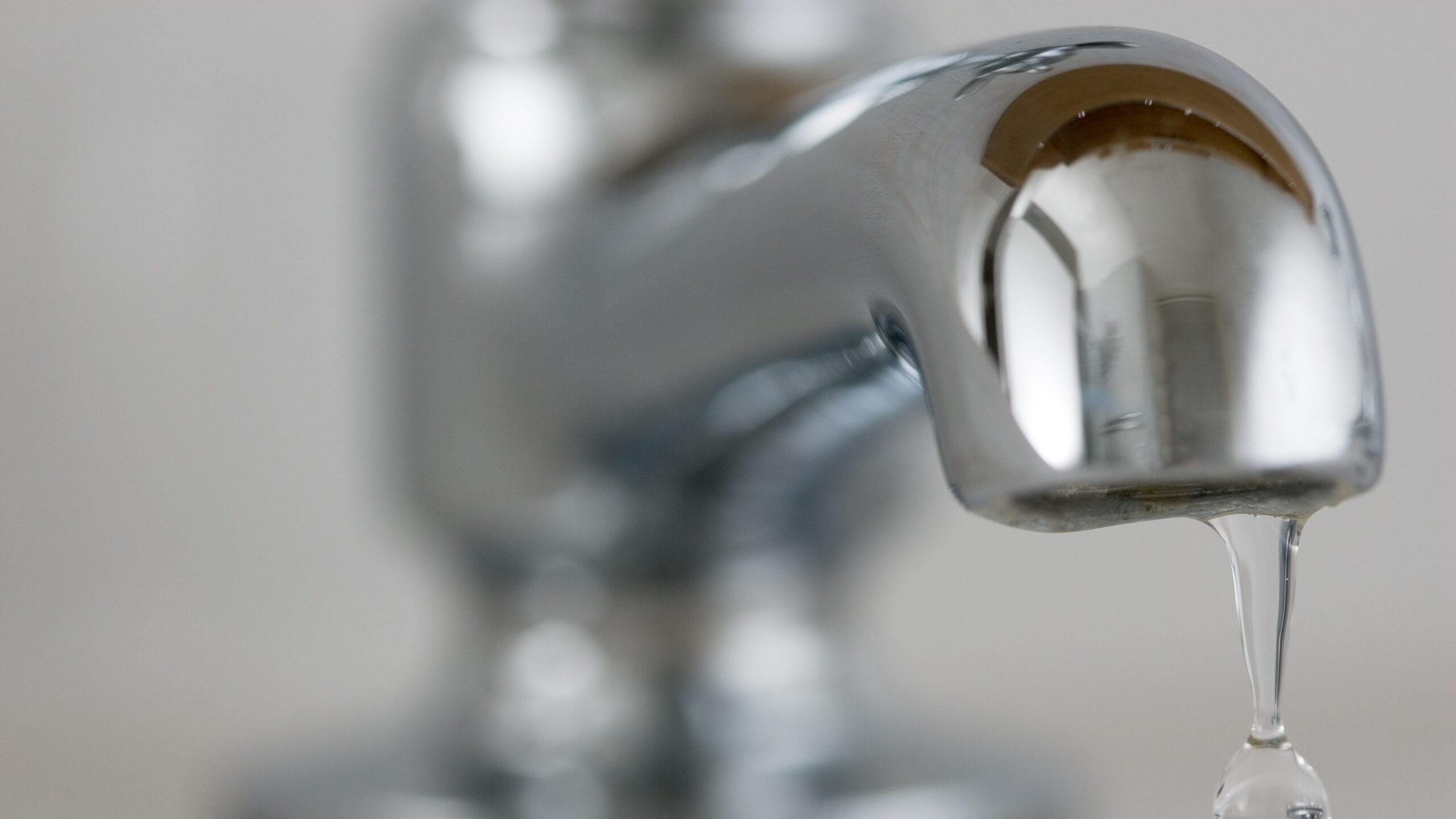Water supply interruptions or outages

We need water for many reasons: drinking, washing hands, food preparation (including preparing baby formula), bathing and showering, looking after pets, washing dishes and clothes, and flushing the toilet. Interruptions to water supply (or ‘outages’) occur for many reasons, ranging from scheduled maintenance to burst water mains. These events are usually over quickly with minimal impact, however longer water supply outages occasionally happen and can be disruptive and distressing. Your water company is the best source of information if this happens.
Who is most at risk?
We all could become unwell from lack of drinking water and dehydration, however some people may be more impacted by an interruption to their water supply. Some of the groups who may be most at risk are:
- People who use more water due to a medical condition.
- Babies and young children.
- Older adults.
- People with long term health conditions.
Actions to take to prepare for water outages
- If you’re eligible, sign up to your water supplier’s Priority Service Register to let them know that you need additional support, including when there is an interruption to your supply. Ask anyone you provide care for if they are registered.
- If you or a member of your household rely on a medical device that needs water to function, talk to your care team to make a plan for what to do if there is a water outage.
- If you have an outside area, consider having a water/rain butt to collect water. Do not drink this water as it could contain bacteria or disease. This water can be used for flushing toilets or watering plants,
- Consider keeping some bottled water at home to meet your essential needs during an emergency. There is no standard figure for this as emergencies can vary in duration and people use different amounts. A minimum of 2.5 to 3 litres of drinking water per person per day is recommended by the World Health Organisation for survival. 10 litres per person per day will make you more comfortable by also providing for basic cooking and hygiene needs. Additional water might be needed to make up baby formula, for medical devices and for pets.
Actions to take during a water outage
- Check your water provider’s website regarding service in your area, and to see if you can pick up alternative sources of water. If you are on the Priority Services Register, your water company will arrange alternative supplies for you.
- Whilst there is no water, use alternative water supplies such as bottled water solely for drinking, washing your hands, cooking and preparing baby formula. There are other fluids which are safe to drink including soft and fizzy drinks that can be stored a cupboard. However do not drink milk or fresh fruit juice that smells as though it has gone off.
- To prepare baby formula safely, you will need to be able to boil water and follow the normal safety procedures. If you are not able to boil water, please try to use ready-to-use baby formula. The NHS provides advice on making up baby formula. To wash your hands, fill a large bowl like a washing up bowl with water and add some soap or a household disinfectant. Keeping water usage to a minimum will prolong alternative sources of water such as water tanks.
- Check to see if others, particularly vulnerable members of your community, are also without water. If they are, you could offer to provide assistance such as collecting bottled water. You could also suggest they register as a priority user with your water company.
Actions to take after a water outage
After a water outage it is common to experience discoloured water. Try running the cold tap nearest to your stopcock (which is usually under your kitchen sink) for a while to see if it clears the discolouration. Contact your water provider if you continue to have problems with your water supply.
Further information and resources
Ofwat provides information on what communication you should expect to receive from your water company in the case of an interruption to water supply.
CCW, the voice for water consumers in Wales, provides answers to frequently asked questions for household customers.
The Scottish Water website allows customers to see the status of the supply in their area and to report any problems with water supply.